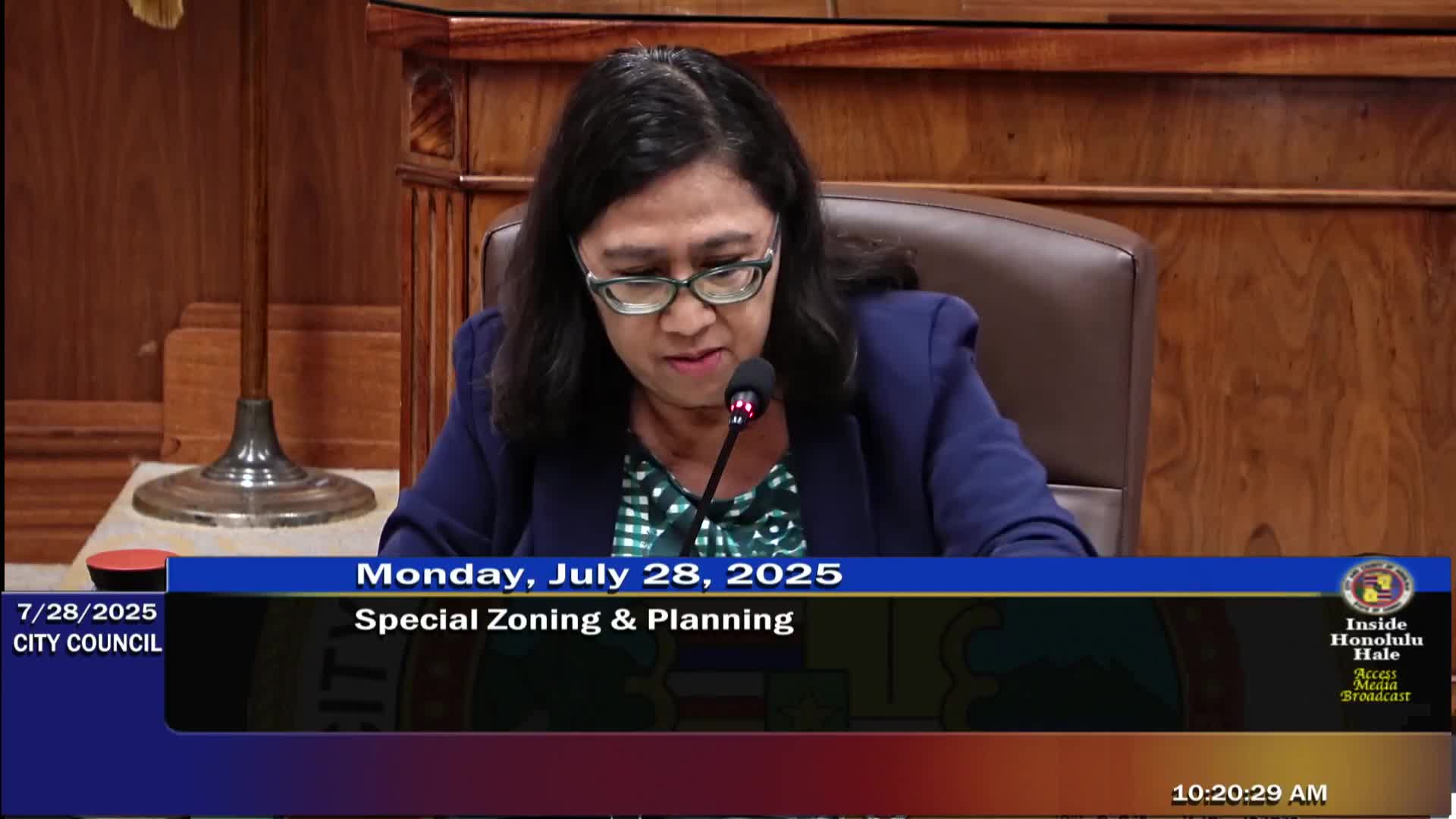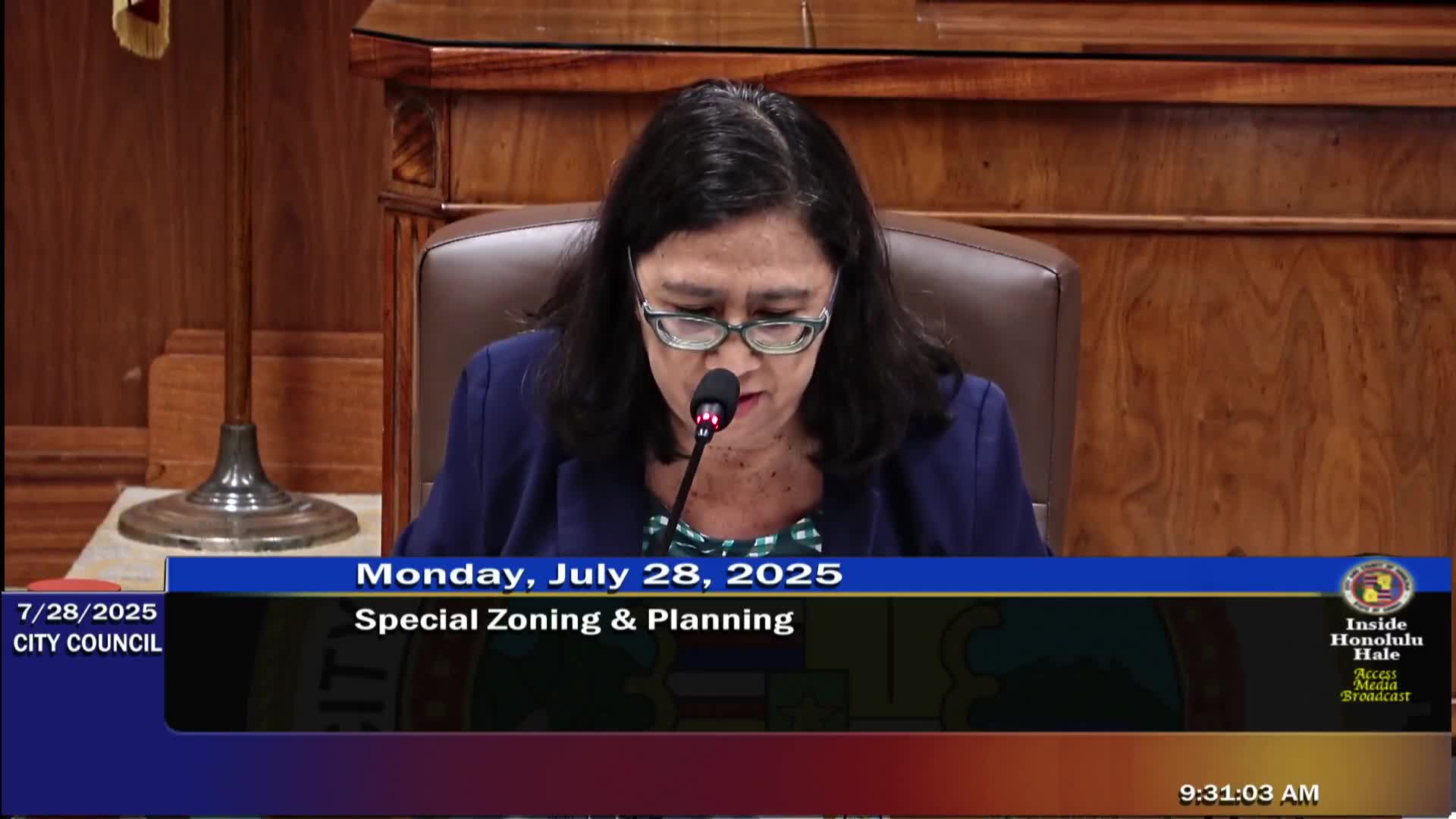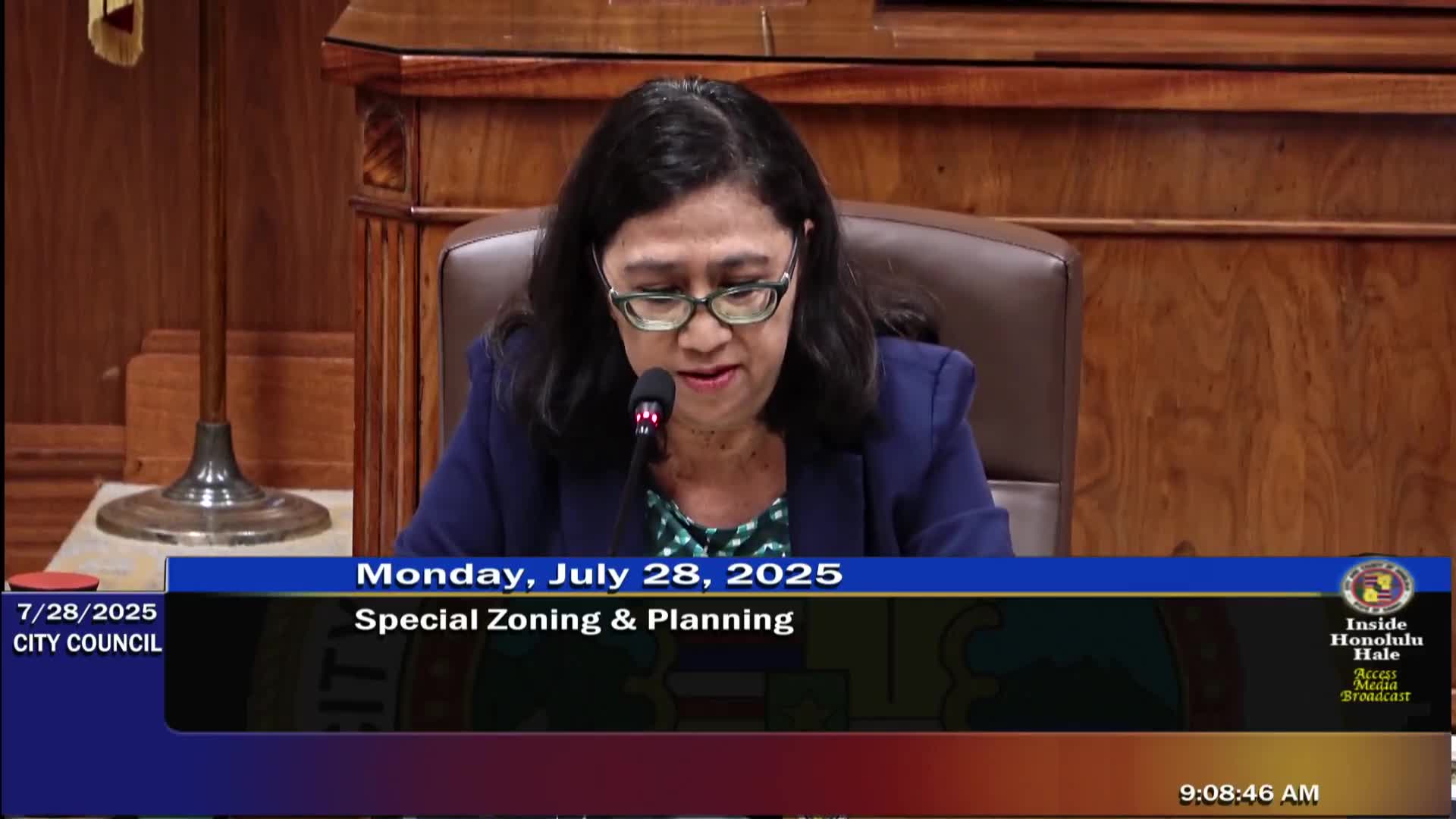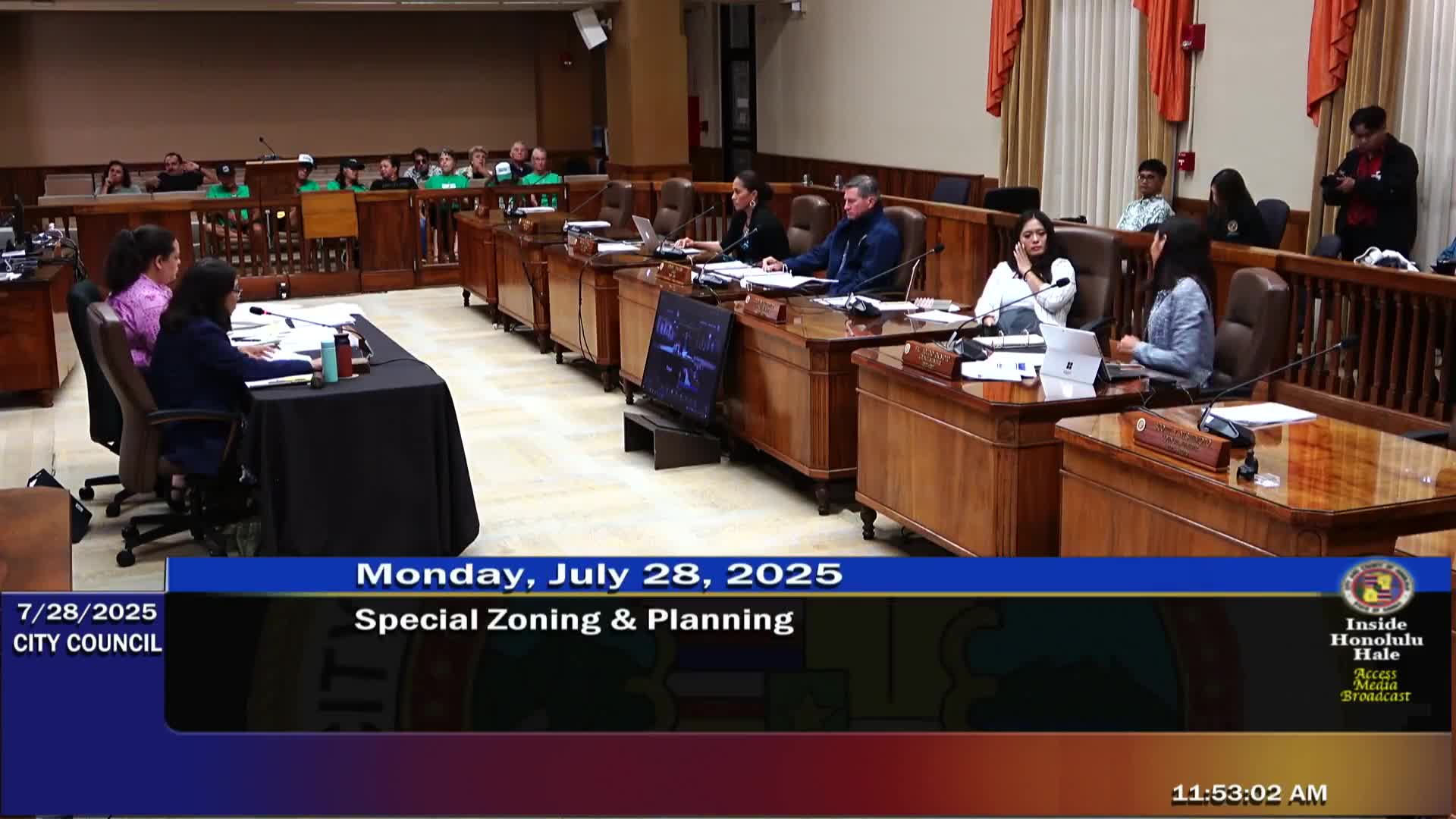Article not found
This article is no longer available. But don't worry—we've gathered other articles that discuss the same topic.

Committee backs state land-use boundary amendment for 7.29 acres in Haleiwa; public opposition prominent

Committee postpones vote on expanded Downtown Honolulu Business Improvement District to allow notice and outreach

Committee amends SMA permit conditions for proposed Kaapuni Drive shoreline homes

